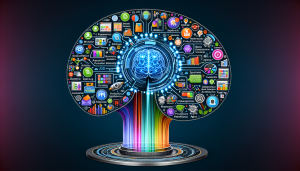 UseCasesFor.ai
UseCasesFor.ai
Choose Topic
 UseCasesFor.ai
UseCasesFor.ai
AI Use Cases
A collection of over 250 uses for artificial intelligence
A continually updated list exploring how different types of AI are used across various industries and AI disciplines,including generative AI use cases, banking AI use cases, AI use cases in healthcare, AI use cases in government, AI use cases in insurance, and more

Sign up
to receive a PDF containing all the use cases and stay updated with the latest AI trends and news (you can always unsubscribe)
Audience segmentation

Introduction
Generative AI is revolutionizing audience segmentation in marketing by moving beyond traditional methods that rely heavily on demographics like age, gender, and location. Instead, it offers a holistic approach by analyzing diverse data sources such as social media activity, search history, and purchase behavior. This allows marketers to identify niche audiences and tailor campaigns with unprecedented precision. For example, Generative AI can help brands like National Geographic target audiences passionate about environmental issues, even if they do not fit conventional demographic categories. By leveraging AI-driven insights, businesses can create highly relevant campaigns, leading to better engagement, higher conversion rates, and improved overall campaign effectiveness. Despite its advantages, Generative AI in audience segmentation poses challenges, including ethical concerns over data privacy and the risk of bias in AI models. Companies must ensure compliance with data protection laws and transparency about how data is collected and used. Addressing biases in AI models through regular audits and proactive adjustments is crucial to avoid alienating specific groups or misrepresenting populations. The benefits of Generative AI, such as increased efficiency, deeper customer insights, and enhanced ROI, outweigh these challenges. By automating the segmentation process and enabling personalized marketing strategies, businesses can achieve greater customer loyalty and differentiation in competitive markets, paving the way for sustained success.
Challenges
Despite its numerous advantages, there are several challenges that can hinder the effective integration of Gen AI in audience segmentation. The quality and quantity of data are probably the most important challenge. To effectively segment audiences, one needs to have a large amount of high quality data. However, this presents a problem of how to collect, store and manage such data. Other issues include privacy policies and data protection laws. There is also the issue of how best to incorporate AI technologies with current marketing strategies and systems. As is the case with many organizations, many lack the technical know-how on how to implement AI technologies. In addition, there is a possibility of AI models misunderstanding data or possibly forgetting to consider some factors, thus providing wrong audience segmentation. Last but not the least, the expenses that come with the integration of the AI technologies may be high and unaffordable to many companies.
AI Solutions
Despite these challenges, there has been a number of AI solutions that have been developed to assist organisations in dealing with these challenges. Some of the benefits of artificial intelligence include; Machine learning algorithms can work through large amounts of information and identify trends that would be difficult for a human to recognize. Natural language processing algorithms can process unstructured texts like social media, customer feedback, and reviews to enhance the understanding of customers’ attitudes and actions. Predictive analytics enables the prediction of customers’ future behaviour based on the historical data that has been collected. It can also perform most of the work that is involved in audience segmentation, which gives marketers more time to work on other important strategies. IBM, Adobe, and Salesforce are some of the companies that have come up with AI-enabled marketing solutions that are compatible with other systems and offer various audience segmentation capabilities.
Benefits
There are a lots of advantages of applying Gen AI in audience segmentation. First, it provides the accuracy that was not possible before. With AI, marketers can segment their audiences based on many factors such as browsing behavior, purchase history and social media activity. This allows for the creation of more specific and efficient marketing strategies. Another benefit of AI is that it can work through data and make analyses much faster than a human being, thus enabling better and more timely marketing strategies. Furthermore, AI can also enable organisations to cut costs as some tasks can be done automatically and with greater efficiency. Lastly, by giving better understanding of customer’s behavior, AI can assist organizations to make better strategic decisions.
Return on Investment
It can be rather lucrative to apply AI in audience segmentation than to implement it in other marketing areas. According to a study by the Boston Consulting Group, companies that have adopted AI in their marketing strategies have made a 10% increase in their sales. Still, the ROI may differ significantly based on a number of factors such as quality of data, efficiency of the AI algorithms, and the organization’s capability to capitalize on the insights derived from AI. Furthermore, it is also important to note that although AI involves initial expenses such as the cost of developing and integrating the AI system, the benefits of AI include reduction in costs as well as increasing revenues in the long run.